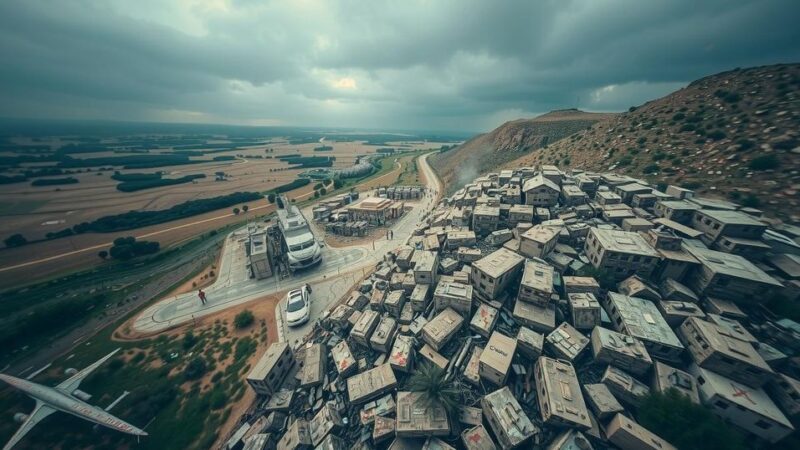A mountain collapse in the Democratic Republic of Congo exposed vast copper reserves, triggering discussions on colonialism. The event, occurring in the mineral-rich Katanga region, drew large crowds and sparked internet reactions advocating for the protection of local resources from foreign exploitation. Copper’s rising importance in global markets highlights ongoing concerns regarding equitable resource management.
A recent mountain collapse in the Democratic Republic of Congo has unveiled significant copper reserves, igniting discussions surrounding colonialism and extraction practices. Footage capturing the dramatic event has gained traction online, prompting humorous remarks about safeguarding these minerals from foreign entities. Occurring in the mineral-rich Katanga region, the incident drew hundreds of onlookers, with footage showing individuals fleeing as large boulders cascaded down the mountainside. Copper is recognized as one of the Democratic Republic of Congo’s most valuable resources, particularly abundant in the Katanga region, renowned for the Central African Copperbelt’s extensive and high-grade deposits. This area not only possesses copper but also cobalt, uranium, tin, and zinc, making it a crucial player in global mineral markets. The rise in demand for copper due to shifts toward renewable energy and electric vehicle production further underscores its global importance. The revelation of more copper reserves has sparked a wave of reactions on social media. Some users emphasized the need to protect Congolese resources from foreign interference, with comments highlighting the sentiment of ownership over national minerals. Others speculated on the implications of the mountain’s collapse, suggesting that it resulted from excessive mining activities, rather than being a purely natural occurrence. In summary, the collapse has intensified scrutiny over the extraction of resources in the Democratic Republic of Congo, with a particular focus on the need to prioritize the interests of local populations over foreign exploitation. As the demand for copper continues to escalate globally, the situation presents both challenges and opportunities for the region. The situation surrounding the recent mountain collapse in the Democratic Republic of Congo serves as a poignant reminder of the complexities involved in resource extraction, particularly in areas rich in minerals that hold immense value both regionally and internationally. The discourse surrounding this event must continue to emphasize the importance of equitable resource management and respect for the sovereignty of nations rich in natural resources. “Congo needs to ban entry of Britain and other westerners in view the mountain collapse revealing minerals to keep them safe.” – User on X. The source of the information has been referenced from Al Jazeera reports and social media reactions related to the incident. In conclusion, the mountain collapse in the Democratic Republic of Congo has uncovered substantial copper reserves while prompting critical discussions about colonialism and resource management. The global demand for copper further compounds the need for balancing economic interests with local rights and sustainability.
The Democratic Republic of Congo (DRC) is situated in Central Africa and features vast mineral wealth, particularly in the Katanga region, which is part of the extensive Central African Copperbelt. This region contains some of the world’s highest-quality copper deposits alongside other significant minerals such as cobalt and uranium. The DRC’s history of colonial exploitation has made discussions about foreign companies mining these resources increasingly contentious, especially in light of growing global demand for metals due to technological advancements and renewable energy requirements.
In summary, the mountain collapse in the Democratic Republic of Congo has unveiled significant copper deposits while igniting crucial conversations about resource management and colonial legacies. The responses from internet users reflect a growing sentiment for national sovereignty, highlighting the complexities of foreign investments in mineral-rich countries. As global demand for copper rises, the need for responsible and equitable resource extraction practices becomes increasingly urgent.
Original Source: www.hindustantimes.com



